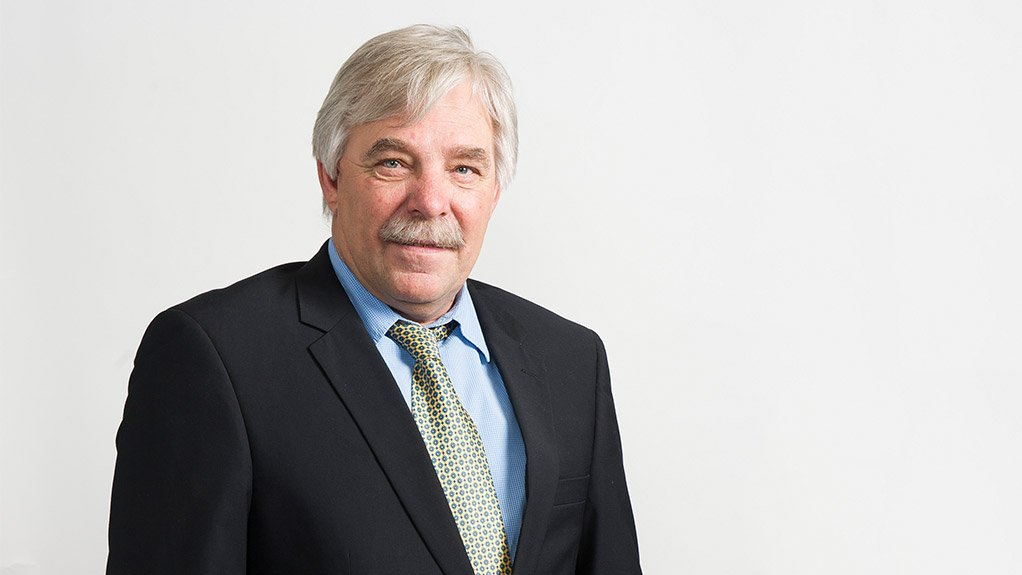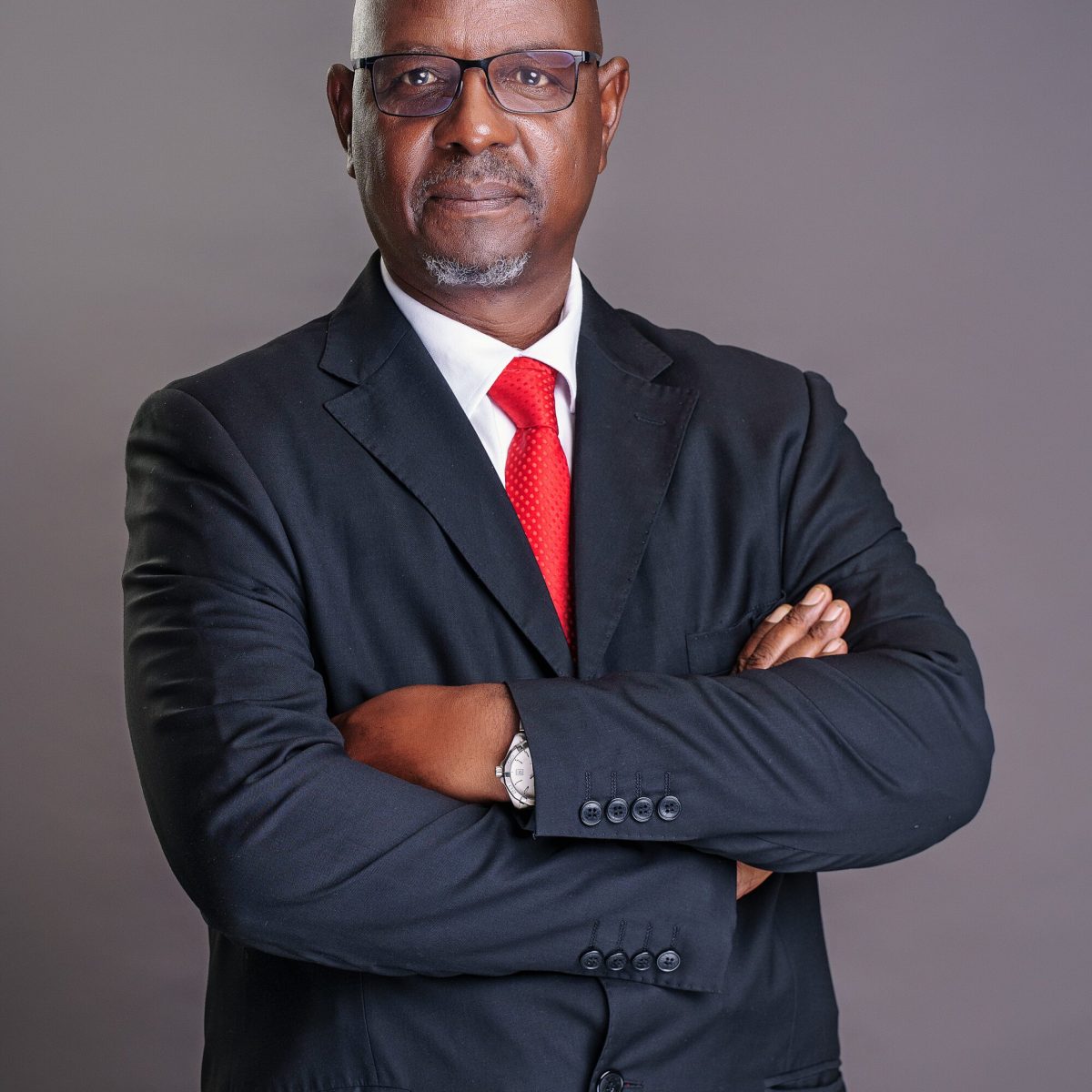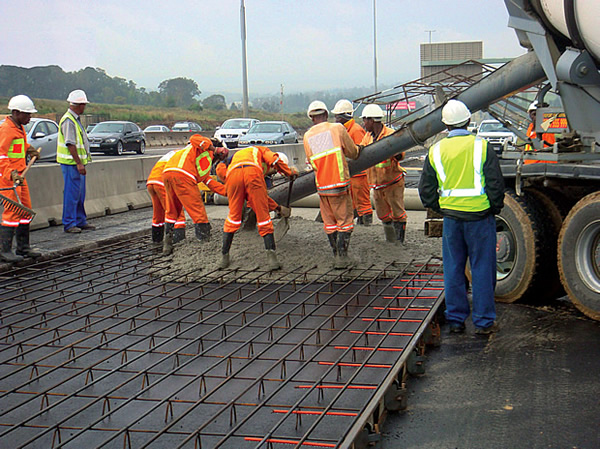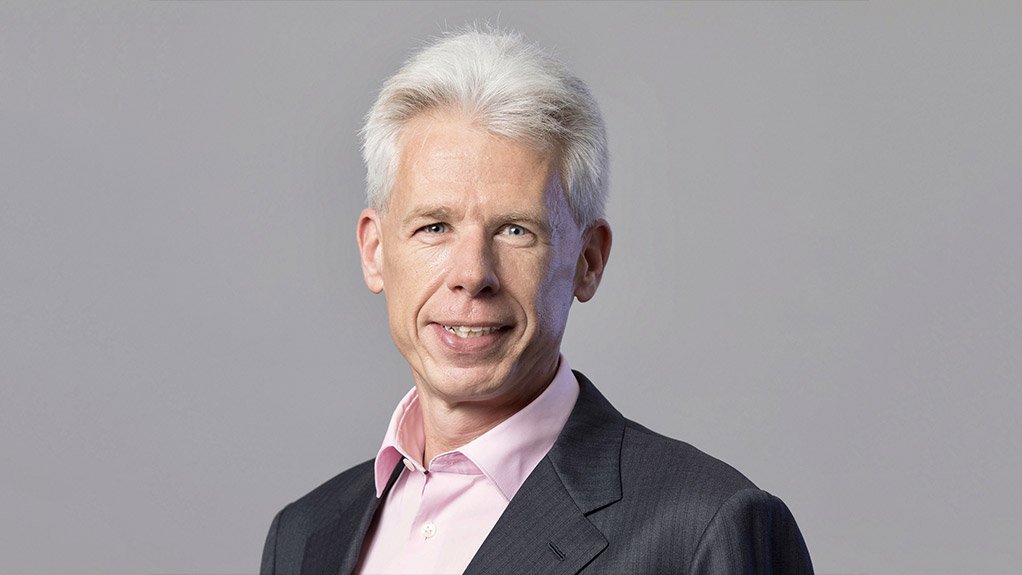

Cement producer PPC’s diversified portfolio has enabled the company to offset weaker South African performance with robust growth in the rest of Africa during the six months ended September 30, CEO Johan Claassen said on 23 November.
Reporting on the company’s financial results for the interim period, he said the company focused on certain strategic and operational initiatives to ensure greater competitiveness and improved efficiencies. These included reducing interest rate charges, increasing free cash flow, as well as implementing the R50/t profitability initiatives and optimising operations.
PPC’s revenue rose by 8% year-on-year to R5.6-billion on the back of a 4% increase in total cement sales volumes to 3.1-million tonnes. When including the Rwanda plant upgrade and the Democratic of Republic Congo-based plant, which was fully accounted for in the period, cost of sales increased by 16% to R4.5-billion, PPC stated.
South Africa Cement contained the increase in its cost of sales to 5%, despite the inclusion of R19-million in capital expenditure related to SK9. Group overheads increased by 6% to R580-million, although overheads in the South African businesses reduced as a result of actions taken as part of the R50/t profitability initiatives.
According to PPC CFO Tryphosa Ramano, the restructuring of the group’s South African debt at lower effective interest rates of 9.5% reduced the company’s interest charges, which, on a like-for-like basis, declined by 31%. “We also delivered positive free cash flow of R202-million, while cash on hand totalled R1.3-billion, a 50% increase,” Ramano noted.
Southern African cement revenue, which includes Botswana, reduced by 4.2% despite a 1% to 2% increase in realised average selling prices, as volumes declined by 3%. In South Africa, the performance was impacted by a 71% rise in imports and increased blender activity in a low-growth environment, where both the consumer segment and construction industry came under severe pressure.
Variable costs rose by 4%, which PPC said is mainly attributable to a 13% increase in distribution costs, on a rand per tonne basis, which were affected by a significant rise in fuel prices. The successful integration of Safika and commissioning of SK9 at the end of June, formed part of the R50/t profitability initiatives, as did the ‘SURERANGE’ launch which broadened PPC’s product offering to include fit-for-purpose cement. These initiatives will reduce future operating costs.
“Looking forward, we have raised our profitability initiatives to R70/t and will implement price increases to achieve sustainable return in excess of the group’s cost of capital,” added Claassen. The materials business, which positions PPC as a leading materials solutions provider, delivered revenue growth of 7% and contributed R100-million to earnings before interest, taxes, depreciation and amortisation (Ebitda).
“We are very pleased with our rest of Africa operations which grew volumes by over 34%, increased revenues by 36% to R1.7-billion and improved Ebitda by 18% to R499-million. This performance was supported by robust volume growth in Zimbabwe and a positive contribution from the DRC,” said Claassen.
The first phase of our Cimerwa plant upgrade in Rwanda, which entailed debottlenecking PPC’s plant to increase production capacity was successfully completed during the period. Cimerwa achieved revenue of R402-million and Ebitda of R92-million in the six months under review, despite undergoing an upgrade to increase capacity utilisation to 80%.
Meanwhile, PPC Zimbabwe grew its revenue by 31% to R1.1-billion on the back of a 29% increase in volumes. The performance was supported by the successful implementation of a route-to-market strategy, which enabled PPC to benefit from an upsurge in construction activity.
In the DRC, PPC Barnet’s route-to-market initiatives supported increasing market share between 25% and 30%, and R240-million in revenue, while the benefits of having rightsized the business and implementing stringent cost controls delivered Ebitda of R60-million.
Habesha, in Ethiopia, which is still in ramp-up, delivered over 300 000 t of cement during the period. It, however, incurred a net loss of R19-million as performance was constrained by the political environment and heavy rainfall in the second quarter of the financial year. Looking ahead, PPC expects trading conditions in South Africa and the DRC to remain difficult. “However, we should benefit from a steady performance in Zimbabwe, improved output from Cimerwa and a stable political environment in Ethiopia, while the DRC elections are a key milestone to unlock latent infrastructure demand.
“We are committed to executing on our key priorities, which aim to improve efficiencies and margins in order to cement our solid foundation and deliver sustainable shareholder value,” commented Claassen.
More news
- DOK-ING’s innovative electric mining equipment unveiled at ElectraMining
- CONCOR’S MASTERY IN FAST TRACK PROJECT IMPLEMENTATION UNDERSCORED BY SAFETY AWARD
- PROMINENT SEA POINT HOTEL REFURBS WITH REHAU
- CONCRETE ROOF TILES USED FOR WALL CLADDING ON COASTAL HOME
- THE GREENEST RESIDENTIAL DEVELOPMENT IN AFRICA?





